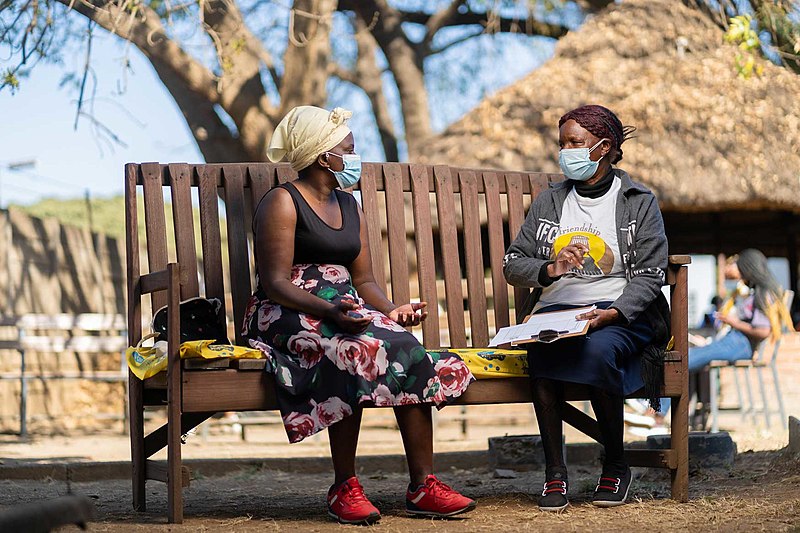The Impact of Friendship Benches on Mental Health in Zimbabwe

The Friendship Bench has revolutionized the field of mental health in Zimbabwe and beyond. Due to its great localized success, 32 Friendship Benches have undergone installation around stadiums at the FIFA World Cup in Qatar.
Mental Health in Zimbabwe
Zimbabwe is a landlocked country in southern Africa, with 70% of the population living below the poverty line. This economic state has caused many struggles for the citizens, such as inadequate nutrition and the prevalence of diseases. Mental health is also a major issue, but many often neglect it. Legislation regarding mental health policy is outdated, and the World Health Organization (WHO) has reported that “There is a shortage of human resources for mental health in Zimbabwe, in part a result of the emigration of locally trained professionals due to economic instability.”
Mental health is an important issue for the citizens of any country. Therefore, mental health care and support are a necessary part of a nation’s health system. UNICEF Zimbabwe has called for more assistance for youth and adolescents in the wake of the COVID-19 pandemic. Still, the country lacks the resources to address the issue in its entirety. This challenge has required creative solutions from local NGOs, an example being the Friendship Bench Project.
The Birth of the Friendship Bench
Since 2006, the Friendship Bench has trained more than 600 mentors to offer support on benches in communities around Zimbabwe. These volunteers offer assistance using techniques based on cognitive behavioral therapy and are often from the communities in which they practice. This connection allows a deeper understanding of the struggles that community members face. Citizens engage in positive dialogue with these volunteers, usually in 45-minute segments. In the past 16 years, the project has extended to Malawi, Zanzibar and New York City. In the future, it plans to expand in order to offer more care for youth and adolescents.
Proven Success
In 2016, JAMA Network produced a clinical trial regarding the potential impact of the Friendship Benches and the care they provide. Results indicated that “the group from the Friendship Bench had a significant decrease in depressive symptoms, compared to the control group.” These impacts on mental health in Zimbabwe prove that projects like this may be effective in countries with poor mental health resources.
The 2022 FIFA World Cup
Due to the success of the Friendship Bench in Zimbabwe, several groups have worked together to install 32 benches at the 2022 FIFA World Cup in Qatar. They will be located around the different stadiums, and will each represent a different participating international team. Organizers hope that the benches will spark a conversation around the importance of mental health care and focus. The colorful details of these benches are an added feature to catch the attention of players and spectators to spread awareness in a creative and positive format.
The success of the Friendship Bench Project on mental health in Zimbabwe is clear, and its impacts internationally suggest a positive future for growth in mental health care, even in nations with limited resources.
– Hailey Dooley
Photo: Wikimedia Commons
